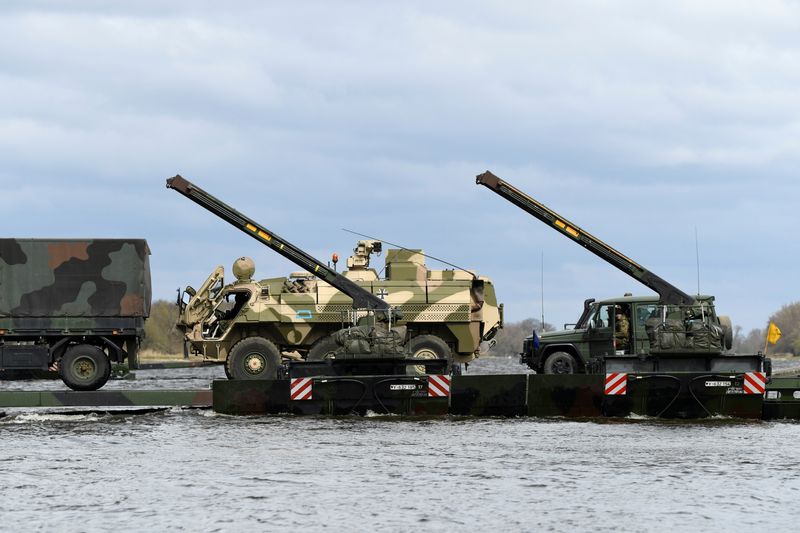Berlin (Reuters) – The German army asked several large companies if they could provide logistical support if the country was to deploy soldiers and equipment on the eastern NATO border during a crisis, the Handelsblatt newspaper reported on Tuesday.
Germany – A logistics center because of its central location in Europe – has committed to contribute 35,000 soldiers and more than 200 planes and ships within 30 days of any major conflict within the framework of the new NATO model to combat growing threats, in particular Russia.
The army is approaching companies mainly to help move soldiers, ammunition and military equipment in the event of an attack against NATO territory by Russia, Handelsblatt reported.
The newspaper also cited industry sources as indicating that discussions were underway to find out if the Lufthansa pilot school could take basic training for fighter aircraft.
Defense giant Rheinmetall, the Lufthansa airline group and the railway operator belonging to the state Deutsche Bahn were among the army companies, according to Handelsblatt.
He said the army is based on commercial transport services to a large extent in crisis areas.
The Bundeswehr (armed forces) returned a request for comment to the Ministry of Defense, which did not immediately respond.
Lufthansa refused to comment, while Deutsche Bahn said that she was unable to provide details on military logistics.
Rheinmetall, who, in February, concluded an agreement with the German army to provide logistical support to the deployment of military forces at the national level and abroad, did not immediately respond to a request for comments on Tuesday.
Germany is increasingly focusing on defense on its own soil since the invasion of Ukraine by Russia in February 2022 raised fears of a wider climbing on the European continent.
A few days after the invasion, Chancellor Olaf Scholz announced a “Zeitenwende” – German for a historic turning point – with a special fund of 100 billion euros (114.6 billion dollars) to modernize the army.
To comply with its NATO obligations, the new German government has promised to strengthen defense spending and introduce a new military service, for the moment on a voluntary basis.
But the challenges of setting up the long-term army of Germany are considerable after decades of under-investment.
The German forces were considerably reduced after the end of 1990 of the Cold War, then trained mainly for missions as in Afghanistan, where the adversary was poorly equipped and not armed force with the most modern weapons.
(1 $ = 0.8722 euros)
(Report by Miranda Murray; edition by; Ludwig Burger and Mark Heinrich)


